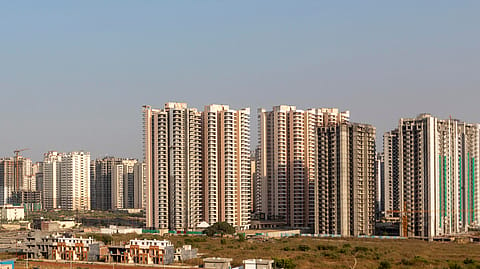Budget 2024: Urban affordable housing gets a push
While most of the real estate sector's wishlist may not have been fulfilled, experts see the 2024 budget giving impetus to affordable housing.

The real estate sector, which had hoped for the first budget of Modi 3.0 to provide infrastructure status to the sector and increase in housing loan tax deductions, faced disappointment with no such announcement. However, the government said that under the PM Awas Yojana, it would be looking at an investment of ₹10 lakh crore for urban housing needs of 1 crore urban poor and middle-class families. This would include central assistance of ₹2.2 lakh crore over the next 5 years, along with provisions for interest subsidies to facilitate loans at affordable rates. The budget also announced enabling policies and regulations for efficient and transparent rental housing markets. The budget has also envisaged rental housing dormitory type accommodation for industrial workers, which will be facilitated through public private funding mode with viability gap funding support.
Samantak Das, chief economist and head of Research & REIS, India, JLL, said that the outlay towards three crore additional homes under PMAY is a positive step which will support the affordable housing segment. "The support extended to affordable housing will convert into a renewed push for this segment, which has been witnessing challenges." With the government’s focus on infrastructure, with an allocation of over ₹11.11 lakh crore— nearly 3.4% of India’s GDP– the real estate industry also sees this to have a cascading effect in driving real estate growth.
Anuj Puri, chairman of ANAROCK Group, says that the focus on rural and urban job creation, if effective, may provide some boost to affordable housing, which has given a tepid performance since the pandemic. This move could help stir up housing demand not just in the metro cities but also in tier 2 and tier 3 cities. With the MSME sector also getting impetus in the budget he sees that potential for a rub off effect on affordable housing. “The pandemic had a catastrophic impact on the MSME sector, which slowed down the demand for affordable housing since 2020. Affordable housing demand may gain momentum once the economic impact of the pandemic subsides for this target audience,” he adds.
While the affordable housing segment has been experiencing a decline in supply post-pandemic, the PMAY scheme also has the potential to drive construction in both urban and rural areas, with a cascading effect on allied sectors. “Rental housing PPP financing and VGF for rental housing will help in meeting the housing needs of the poor while reducing the burden of the government through traditional routes,” says Badal Yagnik, chief executive officer, Colliers India.
While real estate developers are disappointed on several fronts, some of the budget’s announcements have received a thumbs up. Murali Malayappan, chairman & managing director, Shriram Properties Ltd, says the government's step towards digitising India's archaic land documentation system is a game-changer, as transparent and accessible land records will facilitate property transactions, reduce disputes, and encourage investments. “The reduction in long-term capital gains tax from 20% to 12% encourages investment and may prompt more people to consider buying second homes, while the expected reduction in steel costs due to indirect tax benefits will impact construction expenses,” he said. Similarly, Pavitra Shankar, managing director, Brigade Enterprises, also said that while the digitisation of land records using GIS is a good move as it will bring in a better degree of accuracy and transparency, “The union budget 2024, however has not addressed some of the key demands of the real estate sector, including granting of industry status, input tax credit, reduction of GST, and single window clearance. Additionally, there is only a marginal increase in savings on individual income tax under the new taxation regime,” she added.